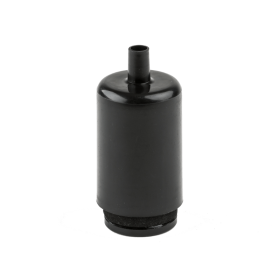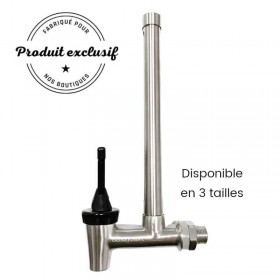Berkey® filters and minerals
Minerals are present in water in the form of mineral salts, derived from the rocks through which it passes. Did you know that they are present in relatively large quantities in the human body, up to a few grams for some of them? They are essentially calcium, magnesium, phosphorus and potassium, but also sodium and iron.
These minerals, which are essential for good health, play an important role in regulating water in the body, in cardiac activity, in hair and skin maintenance, as regulators of blood circulation, but also in the constitution of tissues, and in the production of certain hormones and enzymes.
The body, via the kidneys, eliminates a certain quantity every day. It is therefore essential to find ways of compensating for this loss. These mineral salts are found in plant-based foods, certain dairy products, meat, fish and seafood, and also in significant quantities in drinking water.
And contrary to what we might sometimes think, tap water also contains minerals! In fact, in its natural course, like mineral water, it is loaded with mineral salts and trace elements. These include calcium, up to 25% of daily requirements (depending on the region) and magnesium, 15 to 20mg per litre.
Unlike mineral water, which often contains large quantities of magnesium, tap water does not. If we consider that we eat a balanced diet, our intake of mineral salts is largely offset by the consumption of plants and other mineral-rich foods such as wholemeal cereals and nuts. Over-consumption of mineral water leads to over-consumption of minerals, forcing the kidneys to work hard to eliminate them. In the end, therefore, the mineral intake from tap water is good enough.
As these elements are essential to our health, why remove them? Well, the Berkey® filters used in our purification systems do not remove them. They retain the undesirable pollutants, but allow the mineral salts to pass through.
Share this content
Related products




























